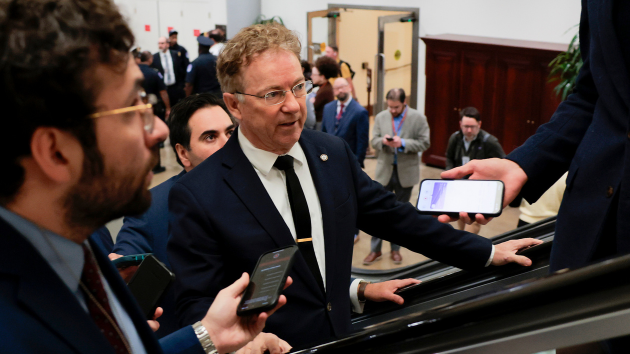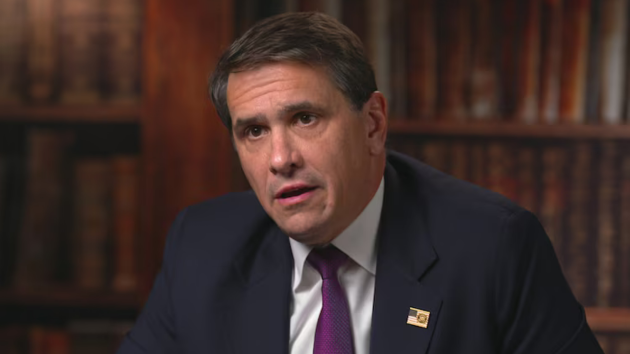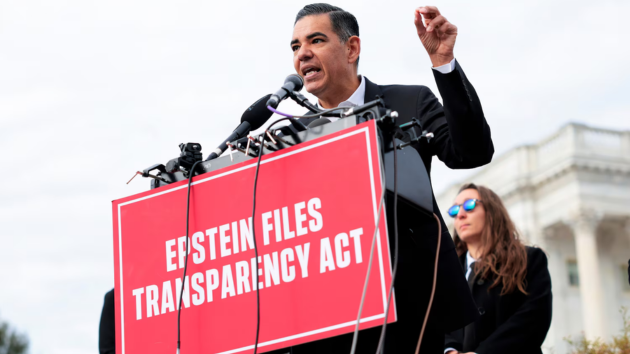Rubio to focus on curbing immigration, countering China in Latin America
Written by ABC Audio ALL RIGHTS RESERVED on February 1, 2025

(WASHINGTON) — Secretary of State Marco Rubio is set to embark on his first diplomatic mission abroad since being confirmed to his post, visiting five countries in Central and South America over the first week of February.
During the trip, Rubio is expected to reinforce the Trump administration’s immigration priorities with leaders in the region, according to a senior official, who said the secretary is also planning to address Beijing’s influence during several of the stops.
The State Department is also billing Rubio’s trip as historic — saying his six-day journey to Panama, El Salvador, Costa Rica, Guatemala and the Dominican Republic marks the first time a U.S. secretary of state has opted to make his or her first official visit to Latin America in over 100 years.
“This is where we live”
In an op-ed for the Wall Street Journal, Rubio said the trip is part of a realignment of American diplomatic priorities.
“For many reasons, U.S. foreign policy has long focused on other regions while overlooking our own. As a result, we’ve let problems fester, missed opportunities and neglected partners,” he said. “That ends now.”
State Department spokeswoman Tammy Bruce said the region’s proximity to the United States was an important factor in selecting it for Rubio’s first trip.
“The fact of the matter is, this is where we live. This is who we are,” she said. “This is about not just wanting to have new partnerships — but that’s always good — but the nature of what it means to have an extended relationship with the people closest to you.”
Those relationships are vital for fulfilling the Trump administration’s border security and deportation plans, Rubio noted.
“Diplomacy’s role in this effort is central. We need to work with countries of origin to halt and deter further migrant flows, and to accept the return of their citizens present in the U.S. illegally,” he said.
Cooperation and coercion
However, the countries on his itinerary have largely been very cooperative with the administration so far, as other countries in the region Rubio will skip over remain hesitant to comply.
Guatemala, for instance, has accepted hundreds of migrants brought to the country on military planes since Trump took office, and the country’s leadership has signaled it is open to accepting deportees of other nationalities.
Meanwhile, Mexico, which is traditionally the U.S.’ most important partner in handling illegal immigration, has been much more tentative.
Mexican President Claudia Sheinbaum originally said the country wouldn’t accept migrants from other countries, but she quietly reversed course in late January when she revealed Mexico had accepted over 4,000 deportees and that while “the large majority” was Mexican, others were not.
Mexico has also so far refused requests from the U.S. to allow military flights carrying deportees to land in the country, according to officials from both countries.
Honduras has posed another challenge to the administration’s agenda. According to data from Immigration and Customs Enforcement at the end of 2024, Hondurans made up the largest share of the population in the deportation pipeline. But ahead of Trump’s inauguration, the president of Honduras threatened to expel members of the U.S. military stationed in the country in response to mass deportations of Honduran nationals.
However, Honduran authorities have signaled the country’s position may be softening. The country’s foreign minister wrote on X that the government is in the process of launching a program to support returning migrants called “Brother, Come Home.”
The Trump administration has also had some early success in overtly pressuring countries to acquiesce. His threatened trade war against Colombia prompted its government to allow military deportation flights to land on its territory.
“It sends a message that this administration, President Trump, Secretary Rubio — they mean what they say,” said Mauricio Claver-Carone, special envoy for Latin America.
Claver-Carone also suggested the Trump administration would use gentler diplomatic tactics as well, saying that during Rubio’s trip, he will attempt to lay the groundwork for a program to repatriate migrants travelling through Central America with the government of Costa Rica.
He also addressed Richard Grenell’s visit to Venezuela to meet with strongman Nicolas Maduro on Friday.
“President Trump expects Nicolas Maduro to take back all of the Venezuelan criminals and gang members that have been exported to United States and to do so unequivocally and without condition,” he said, adding that Grenell, the envoy for special missions, will also urge Maduro to release American hostages held in the country.
A “direct threat” from China
Beyond immigration, Claver-Carone said Beijing’s growing influence in Central America will also be top of mind for Rubio through much of the trip, but it is expected to take center stage during the secretary’s first stop in Panama.
Trump has lodged a litany of complaints related to Panama’s operation of the canal that cuts through the country — claiming that American vessels are overcharged, lamenting that the U.S. ceded control of the vital waterway in the first place and promising “we’re taking it back” during his inaugural address.
Rubio has taken a more measured approach in discussing the Panama Canal while also underscoring that what he says are Trump’s legitimate concerns about the waterway — especially when it comes to companies controlled by Beijing located on each end of it.
“If the government in China in a conflict tells them to shut down the Panama Canal, they will have to,” Rubio said in an interview on Thursday. “That is a direct threat.”
Rubio continued to say it is a dynamic that cannot be allowed to continue.
“It is not in the national interest of the United States to have a canal we paid for and we built used as a leverage and a weapon against us. That can’t happen,” he said.
But ahead of Rubio’s visit, Panama President Jose Raul Mulino said handing back control of the canal isn’t a thought he can entertain.
“It’s impossible,” Mulino said during a press conference on Thursday. “I cannot negotiate, and much less open, a process of negotiation over the canal. That’s sealed. The canal belongs to Panama.”
Copyright © 2025, ABC Audio. All rights reserved.





